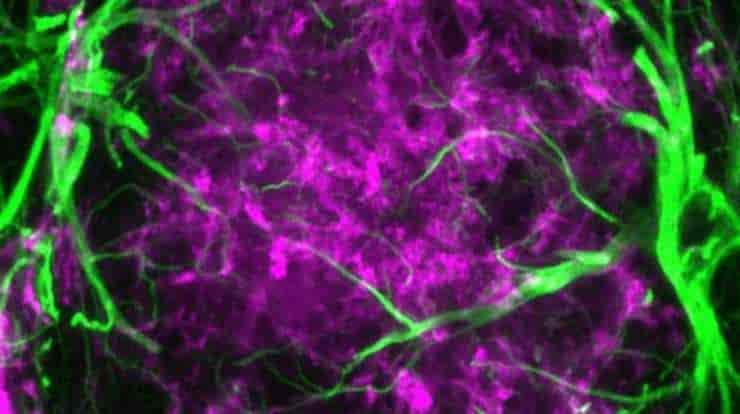A new approach to Alzheimer’s disease (AD) that may eventually make it possible to reverse memory loss has been revealed by a team led by University at Buffalo scientists. They found that by focusing on gene changes caused by influences other than DNA sequences — called epigenetics — it was possible to reverse memory decline…
Tag: Alzheimer’s
CRISPR Helps Identify New Biomarker For Alzheimer’s Disease
STIM1 protein expression decreases with the progression of neurodegeneration in Alzheimer’s disease, new research indicates. Conducted at the Institute of Molecular Pathology Biomarkers, University of Extremadura, in Badajoz, Spain, the study’s aim was to develop a model for studying Alzheimer’s disease (AD) of sporadic origin—in other words, AD that is not due to a hereditary…
Dementia – Improving Treatment Of Non-cognitive Symptoms
The memory and thinking symptoms associated with Alzheimer’s dementia are the most well-known. But it is the behavioral and psychological symptoms of dementia (BPSD) – agitation, anxiety, apathy, depression, wandering, hallucinations, insomnia, incontinence, and disinhibition – that often cause the greatest caregiving challenges and are the leading causes for placement in assisted living or nursing…
P2Y1 Astrocyte Finding Points To New Approach Against Alzheimer’s
Blocking the P2Y1 receptor on astrocytes normalized brain function and improved memory performance in studies with mice, a study by scientists of the German Center for Neurodegenerative Diseases (DZNE) reports. The finding points to a potential approach against Alzheimer’s disease. Alzheimer’s disease is an incurable brain disorder leading to dementia. its mechanisms remain incompletely understood.…
Daytime Drowsiness Could Be Warning Sign Of Alzheimer's
Excessive sleepiness in the daytime could be an indicator of Alzheimer’s disease, research from the Mayo Clinic indicates. The study found that daytime drowsiness is associated with amyloid beta plaque buildup. Accumulation of this protein in the brain is a classic sign of Alzheimer’s. The study was a longitudinal cohort analysis of 283 elderly participants…
Simulated Vascular Stiffness Promotes Alzheimer’s Disease Burden In The Lab
Alzheimer’s disease has a complex and faceted set of disease mechanisms. Although it is typically defined as a disease which affects the neurons of the brain, it has become increasingly apparent that the disease also affects the vasculature of the brain in Alzheimer’s progression. The ‘dual hit’ hypothesis suggests that damage to the brains vasculature…
Albuminuria Increases Alzheimer’s Disease & Vascular Dementia Risk
Alzheimer’s disease and vascular dementia both are, respectively, the first and second most common neurodegenerative diseases. Although dementia is a massive global issue, the actual mechanisms causing these diseases are relatively unknown with multiple diseases increasing the risk of developing a dementia. A recent study has established a link between albuminuria and both Alzheimer’s disease…
Heightened Anxiety May Be Early Indicator Of Alzheimer's
An association between elevated amyloid beta levels and the worsening of anxiety symptoms is suggested in a new study. The findings support the theory that neuropsychiatric symptoms could represent the early manifestation of Alzheimer’s disease in older adults. Past studies have suggested depression and other neuropsychiatric symptoms may be predictors of progression of Alzheimer’s Disease…
Eye Imaging Provides Neurovascular Biomarker In Alzheimer’s Subjects
The relationship between blood flow in the brain and neurodegenerative diseases is well documented and gaining prominence in research circles. The dysfunction of brain blood flow (neurovascular dysfunction) has been shown to disrupt the removal of the key Alzheimer’s protein amyloid-beta as well as damaging brain cells from leakage of foreign cells into the brain…

